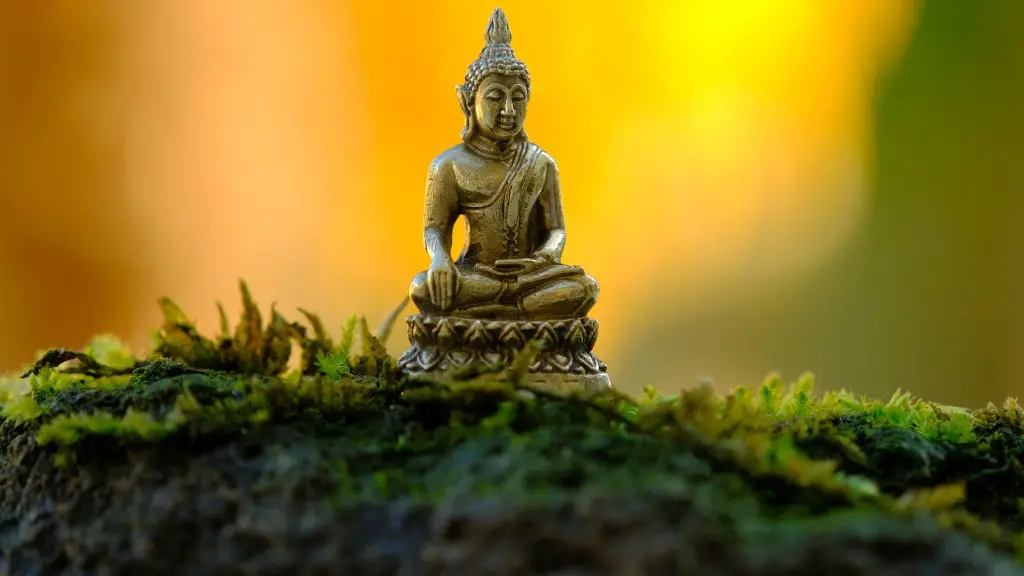How Are The Origins Of Hinduism And Buddhism Similar
Hinduism and Buddhism are two religious traditions that originated within the Indian subcontinent more than two thousand years ago. Though they share many similarities, these two religions remain distinct in important ways. In this article, we will explore the origins and similarities of Hinduism and Buddhism while highlighting their differences.
Hinduism is the oldest surviving religion on the Indian subcontinent with its origins tracing back to around 1500 BCE. It is characterized by a belief in the immortality of the soul, reincarnation, and karma. Hinduism also places a strong emphasis on devotion to one or more deities. In contrast, Buddhism was founded by Siddhartha Gautama in the 5th century BCE and is characterized by its doctrine of the Four Noble Truths. This doctrine states that life is suffering, and the path to liberation from suffering comes from an understanding of the cause of suffering, known as the Noble Eightfold Path.
Though these two religious traditions have different founders and doctrines, they share many similarities. For example, both Hinduism and Buddhism share beliefs in the doctrine of karma, which is the idea that past actions have direct effects on a person’s present life. In both traditions, karma is seen as the law of cause and effect, and it is believed that good actions will bring rewards in this life and the life to come. Both traditions also share a belief in the importance of meditation, though in Buddhism this practice is seen as a means to enlightenment whereas in Hinduism it is primarily used for spiritual and personal growth.
Another similarity between the two religions is their view of the individual’s role in the universe. In both Hinduism and Buddhism, the individual has an active role in obtaining enlightenment and becoming one with the divine. This involves a journey of meditation, self-reflection, and spiritual growth. Finally, both religions believe in the power of mantras and prayers for personal transformation and spiritual purification.
In spite of the many similarities between Hinduism and Buddhism, there are still many important differences between them. The most obvious of these is the concept of a personal god. Hinduism is polytheistic and focuses heavily on the veneration of multiple deities, while Buddhism is atheistic and does not involve the worship of any gods. Moreover, Buddhism is a non-theistic religion in which liberation from suffering is the main focus, while in Hinduism, devotion to the divine is the primary goal.
Most notably, the paths to liberation in these two religious traditions are distinct. In Hinduism, liberation is achieved through devotion to the divine, release from the cycle of karma, and the practice of yoga. Conversely, Buddhism focuses on the noble eightfold path and an understanding of the Four Noble Truths to reach liberation from suffering.
Hinduism and Buddhism: Practices and Rituals
Hinduism and Buddhism have distinct approaches to practice and ritual. In Hinduism, rituals are seen as a way to create and maintain a sense of order and stability in the universe. These rituals are often performed to please the gods and to honor ancestors. On the other hand, Buddhist rituals are focused more on gaining spiritual insight and obtaining enlightenment. Therefore, Buddhist rituals often involve practices such as meditation and chanting of mantras as a way to connect with the divine.
Furthermore, there are other differences in how the two religions view the importance of practices and rituals. In Hinduism, rituals are seen as essential for creating order in the universe and the practice of these rituals are mandatory for all followers. Buddhism, on the other hand, is much more focused on the individual’s journey towards enlightenment and is less concerned with the notion of shared rituals or practices. Instead, Buddhist rituals are seen as internal practices that help bring about spiritual insight.
Hinduism and Buddhism: Beliefs and Values
The practices and rituals of Hinduism and Buddhism not only differ, but their beliefs and values do too. Hinduism stresses a number of core beliefs and values, such as the reincarnation of the spirit, karma, and devotion to the divine. Whereas Buddhism focuses more on the Four Noble Truths and the Eightfold Path, which are more concerned with the liberation of suffering than the idea of eternal life.
Furthermore, each religion also contains values that are related to its foundational beliefs. Hinduism emphasizes the importance of respect and adherence to the caste system, while Buddhism focuses on individual responsibility and the idea of non-attachment. Additionally, Hinduism places importance on rituals and the veneration of multiple gods, while Buddhism emphasizes morality and spiritual insights as the foundations of liberation.
Hinduism and Buddhism: Social Aspects
The social aspects of Hinduism and Buddhism are quite different from one another. In Hinduism, there is a strong emphasis on belonging to a particular caste, and one’s social status is determined by one’s birth. On the other hand, Buddhism largely deprecates the importance of caste, and instead stresses the importance of morality and spiritual insight for liberation.
Furthermore, there are distinct approaches to social issues in each of these religions. In Hinduism, there is a strong emphasis on karma and reincarnation and the idea that one’s actions will determine one’s fate in future lives. Buddhism, however, is focused on liberation in this life and the idea that one’s actions in this life will shape one’s destiny in any future lives.
Hinduism and Buddhism: History and Development
Hinduism has its roots in the ancient Vedic period and has evolved over the centuries. Buddhism, on the other hand, was founded by Siddhartha Gautama in the 5th century BCE and is characterized by its focus on the Four Noble Truths and the Eightfold Path.
Throughout the years, Hinduism has developed in complexity and sophistication. Over the centuries, Hinduism has adopted the philosophy of various schools and traditions, including Vaishnavism, Shaivism, and Shaktism, and has incorporated new practices and rituals. On the other hand, Buddhism has not significantly changed and has been relatively static since its founding.
In addition to the differences in their development, Hinduism and Buddhism have significant differences in how they are practiced today. Hinduism is the dominant religion in India and is observed by a majority of the population. Buddhism, on the other hand, is primarily practiced in East and Southeast Asia, with only a small percentage of its followers in India.
Hinduism and Buddhism: Conclusion
Though Hinduism and Buddhism have many similarities and differences, the two religions still remain distinct. While both traditions have their own core beliefs, values, and practices, the paths to spiritual liberation in the two religions are unique. In conclusion, the origins and similarities of Hinduism and Buddhism will remain a subject of debate and scholarship for centuries to come.


